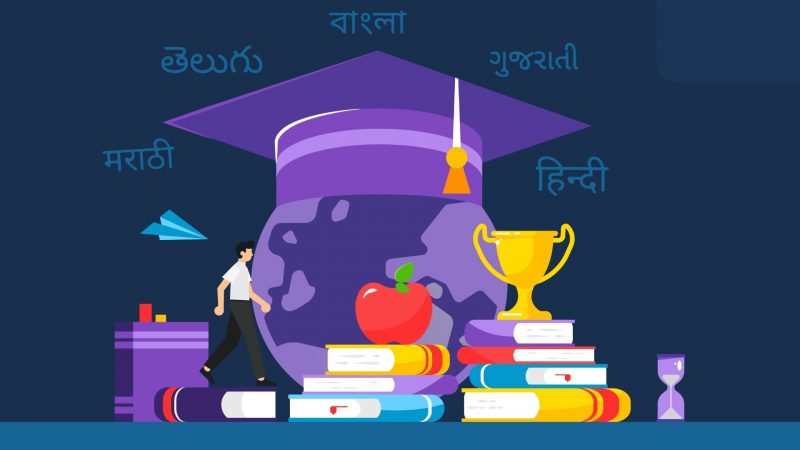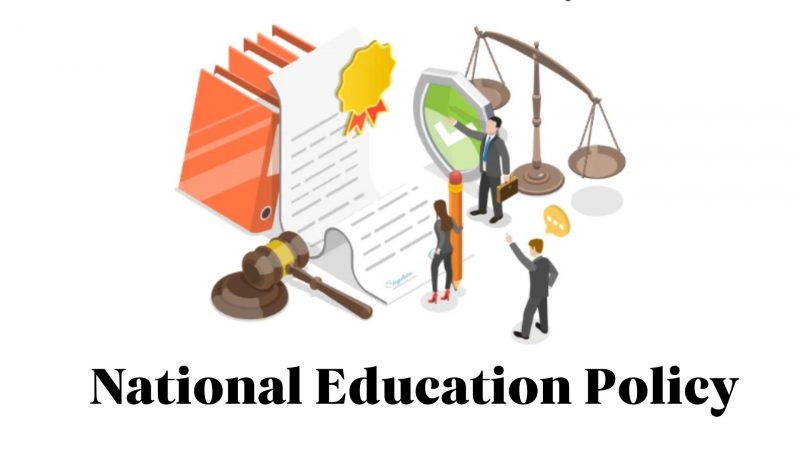
National Education Policy: The New Transformations in the Education System
The National Education Policy 2020 (NEP), which was initially announced three years ago, is currently being gradually implemented at educational institutions of higher learning. The NEP will implement a number of reforms, including those to the structure, higher education, and the adoption of mother tongue, during the 2023–2024 academic year.
The new program would modernize the Indian educational system, which was hampered by variations in curricula and instructional methods across the nation, by ensuring that all children receive an education from preschool to secondary level. With this program, the government hopes to close the socioeconomic gap, eliminate dropout rates, and improve academic results.

The Top 5 Features Of NEP 2020
Multiple options for entry and exit
The NEP suggests a variety of entry and exit points for students in higher education. The clause states that students may discontinue their study and pick it back up whenever they choose or believe it is worthwhile.
5+3+3+4 Structure
In place of the current 10+2 school curriculum framework, a 5+3+3+4 structure covering the ages of 3–8, 8–11, 11–14, and 14–18 will be used. A child’s preschool and primary school years fall within the first five years, which are considered Formative years. Middle school will come after the preparatory period, which will last the next three years. Secondary schooling will extend for the final four years.
Use of Mother Tongue
The NEP emphasizes the use of the mother tongue as the instruction’s medium. It does not, however, compel someone to speak a specific language. A higher incidence of parental involvement in a child’s education is anticipated when the mother language is used.
Common Entrance Exams For Universities
The NEP also calls for the Central University Entrance Test (CUET), which would enable students to take one exam to be considered for admission to numerous universities for undergraduate and postgraduate programs. Additionally, it would spare them the trouble of showing up separately for various exams and conserve their time, energy, and money.
Multidisciplinary Learning
The new policy has recommended interdisciplinary education as a comprehensive strategy across all sciences to promote knowledge coherence and integrity. Through transdisciplinary and holistic learning, students can gain courses in science, technology, math, liberal arts, languages, humanities, social sciences, professional skills, and vocational skills.

Why Is NEP?
By eliminating the variations in curriculum, boards, and states, the NEP aims to provide students with a fair playing field while prioritizing learning, creativity, and curiosity. It has made an effort to update teaching to reflect the times by adding programs in astronomy, robotics, and Industry 4.0 technologies.
The MPhil programs, which served as a forerunner to the PhD programs, and other useless courses have also been eliminated by the NEP.
Due to the fact that teachers will now be hired through a four-year integrated curriculum, the policy has also placed a strong emphasis on quality teacher recruitment and training.
Will It Have An Impact On Students, Teachers, And Institutions?
- Students: The NEP will be highly helpful for the students since it will encourage the understanding of the material and its application in real-world situations. Through the new policy, students will improve their transdisciplinary, creative, and critical thinking abilities. The ultimate beneficiaries of the policy’s execution will be the students.
- Teachers: The NEP asks for modifications to teacher preparation programs and will modify how instruction is delivered. To encourage “inquiry-based and discussion-based methods” and boost student engagement, teachers will need to adapt their strategies and teaching practices.
- Institutes: The NEP calls into question the ‘qualifications’ offered by a number of educational institutions around the nation as well as the infrastructure that currently supports education. Institutions will need to undergo significant transformation in order to transition to the new practices.
When Will NEP Be Implemented?
The majority of states have already begun partially or fully adopting the National Education Policy. However, certain opposition-ruled states including Tamil Nadu, Kerala, and Karnataka have postponed implementation and voiced resistance.
Karnataka is the first state to declare that it would do away with the NEP as of the next academic year. Kerala, however, has not yet enacted the policy’s requirements.
The Common University Entrance Test (CUET) is presently being used by several major institutions to admit students to higher education programs.
Can States Disapprove The NEP?
Education is a topic on the concurrent list, states are free to decide whether to wholly or partially approve the policies developed by the Centre.
Both the Parliament and state assemblies have the authority to pass laws pertaining to several topics, including education. States also have the freedom to create their own textbooks and curriculums.



